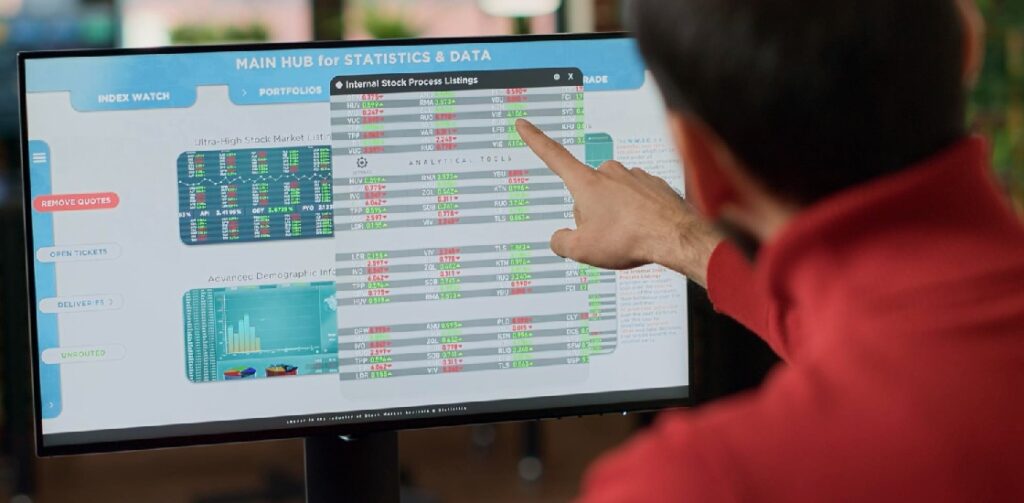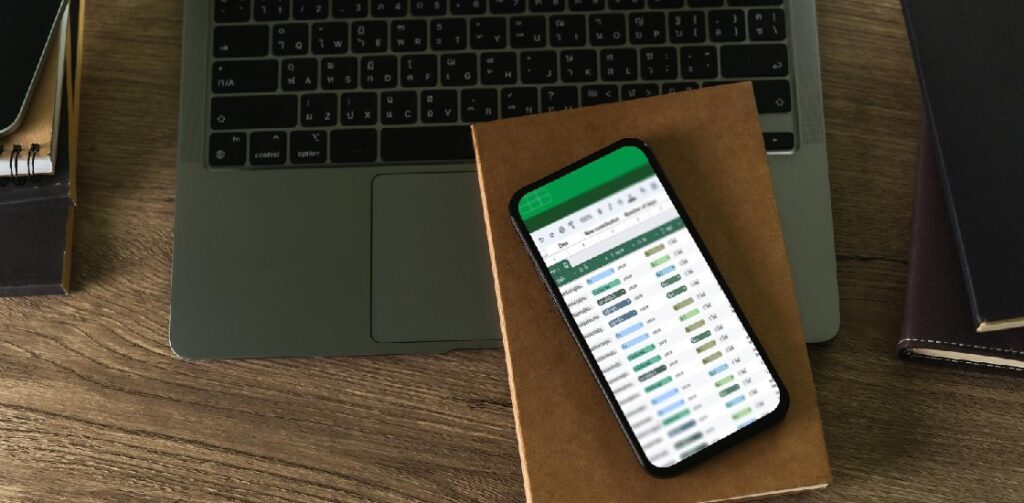Private investigators are often portrayed in movies and TV shows as people who can hack phones, tap into conversations, and pull up private text messages at the click of a button. In reality, the truth is far more complex. While private investigators have many tools at their disposal, when it comes to phone records, there are strict laws in place that define what they can and cannot access.
This blog will help you understand the real limits of private investigation work regarding phone records, what information is legal to obtain, how it can be used, and why hiring a licensed and ethical investigator matters.
What Are Phone Records?
It’s crucial to define what phone records truly consist of before delving into what private investigators are legally permitted to acquire. These records, which include a variety of data, usually relate to information kept by phone service providers such as AT&T, Verizon, or T-Mobile. Call durations, voicemail activity, incoming and outgoing call logs, text message metadata, and information such as the time and receiver, but not the message content itself, are all included in this. Phone records may also contain billing information about account usage and cell tower connections, which can be used to identify general location data.
Strict federal laws safeguard these documents, which are regarded as private. Therefore, they cannot be accessed by private individuals or even licensed private investigators without the proper legal authorization, such as a subpoena or court order. Attempting to retrieve this data through deception or unauthorized means is illegal and can carry serious legal consequences. Understanding these boundaries is crucial when pursuing an investigation.

Can Private Investigators Access Phone Records?
The Short Answer: Not Without a Court Order
Private investigators cannot legally access phone records without a subpoena or court order. In the United States, phone companies are required to protect customer data under federal privacy laws such as the Stored Communications Act (SCA) and the Telecommunications Act.
Unless the private investigator is working with an attorney who obtains a subpoena through the courts, they cannot:
- Retrieve call logs from a carrier
- Listen to voicemail recordings
- Access text message contents
- Track real-time phone location via the carrier
Doing so without permission is illegal and can result in criminal charges for the investigator and civil penalties for the client.
What Can Private Investigators Legally Access?
While direct access to phone records is limited, there are still legal and ethical ways that a licensed private investigator can collect valuable phone-related information. Here’s what they can legally do:
Analyze Publicly Available Information
Our investigators at Bring Em In Investigations often begin with publicly accessible data with our electronic surveillance in Dallas, TX, including:
- Reverse phone lookups
- Online directories
- Social media platforms
- Court records linked to a phone number
For example, if a phone number appears in a public Craigslist post or is linked to a social media profile, a PI can trace it back to its user legally.
Conduct Interviews and Surveillance
If someone is suspected of using a phone in connection with misconduct (like cheating or harassment), a private investigator can:
- Interview witnesses
- Conduct physical surveillance
- Log the target’s use of a phone during surveillance (e.g., taking photos of the person using their phone in certain places)
They cannot listen to the conversation or track who is being called, but they can document behavior.
Use Consent-Based Investigations
In some cases, a private investigator can go legally with general private investigation services in Dallas, TX, and access phone records if the person whose phone is being examined gives written consent. This might occur in:
- Child custody investigations (where one parent consents)
- Corporate investigations (if an employee consents to phone monitoring as part of company policy)
- Spouse-initiated investigations where the phone plan is in the client’s name and they legally own the device or account
Always, this must be handled with caution and clear consent to avoid crossing legal lines.
Work With Attorneys to Obtain Subpoenas
If there is a legal case in progress, an attorney can file for a subpoena to request phone records from a carrier. Private investigators can then analyze that data as part of their work. This process typically applies to:
- Divorce or custody cases
- Fraud investigations
- Criminal defense or prosecution
Once the records are obtained legally, the PI can assist in interpreting call patterns, identifying frequent contacts, or linking certain times of phone activity to events under investigation.

What Are the Legal Restrictions?
Private investigators are bound by state and federal privacy laws. Here are some major restrictions related to phone records:
No Pretexting
Pretexting is when someone pretends to be another person to get private information, like calling a phone company and pretending to be the account holder to access their call logs.
This is strictly illegal under the Telephone Records and Privacy Protection Act of 2006. If a PI engages in pretexting to get phone records, they are committing a crime.
No Hacking or Unauthorized Access
Accessing a phone without permission via spyware, hacking, or retrieving data from a cloud account is illegal unless you are the owner of the device or have explicit consent. Even if a PI is highly skilled with technology, using those skills to break into someone’s phone or provider account is a serious crime.
Recording Conversations Without Consent
Federal and state laws vary, but in many places, recording a phone call without the other person’s consent is illegal. In two-party consent states, both parties must agree to the recording. A PI must know and respect these laws during investigations.
Common Cases Involving Phone Records
While private investigators can’t access everything, phone records often play a role in these types of investigations:
Infidelity Investigations
Clients may suspect their partner of cheating and want to know who they’re texting or calling. A PI cannot access actual message contents, but with legal consent or through subpoenaed records, they can analyze call logs or metadata to identify patterns. For example:
- Frequent calls to an unknown number
- Long calls during specific times
- Calls made from unexpected locations
Child Custody and Divorce
In custody battles, phone records might show who a parent is in frequent contact with, which can be relevant if they’re communicating with someone who poses a risk to the child.
Investigators work alongside family law attorneys to gather legal phone data and use it to support custody arrangements that are in the child’s best interest.
Harassment or Stalking Cases
Victims of stalking or harassment may receive threatening calls or messages. A PI can help gather this evidence, document it, and assist an attorney in requesting phone records through a subpoena.
Corporate Investigations
Businesses may hire a PI to investigate internal misconduct, such as:
- Leaks of confidential information
- Employee theft
- Inappropriate communications during work hours
If the employee uses a company-issued phone, and policies allow for monitoring, phone records can be reviewed legally.
What About Apps and Spyware?
Some people ask private investigators to install apps on a spouse’s or employee’s phone to monitor calls, texts, or GPS location. While there are apps that can do this, using them without the person’s consent is illegal. A PI who offers or uses spyware without legal permission:
- Violates federal wiretap laws
- Risks of lawsuits or criminal charges
- Can lose their license and face fines
Even if the client owns the phone, there must be full transparency and consent, especially in employee-employer situations.
How Do Investigators Track Phones Legally?
Though they can’t access GPS via the carrier, our reliable private investigation agency in Dallas, TX, Bring Em In Investigations can still track someone’s movements in a few legal ways:
- Vehicle tracking (with the owner’s consent) using GPS
- Surveillance techniques to observe movements
- Geolocation from public social media posts
- Cell tower analysis through subpoenaed phone records
For example, if a phone is connected to a certain tower during a crime, it may place the subject in that area, if the data was obtained legally.
Why Hiring an Ethical Private Investigator Matters
Given the strict laws surrounding phone records, hiring a reputable, licensed, and ethical private investigator is crucial. A professional knows:
- What’s legal and what’s not
- How to work with attorneys for proper access
- How to gather evidence that is admissible in court
If an investigator crosses legal lines to get phone records, any evidence they collect can be thrown out, and both the client and investigator can face consequences.
Questions to Ask Before Hiring a PI:
- Are you licensed in this state?
- Do you follow federal and state privacy laws?
- How do you handle phone-related investigations?
- Will you work with my attorney to obtain subpoenas?
- Can you provide a written agreement or contract?
How Bring Em In Investigations Handles Phone Record Cases Legally and Effectively
When dealing with sensitive matters involving phone records, clients in Dallas, TX, trust Bring Em In Investigations for their professional surveillance services in Dallas, TX, discretion, and legal compliance. Our licensed private investigation firm understands the importance of using ethical and lawful methods when handling cases where phone-related data may play a critical role.
We do not engage in illegal practices like pretexting, hacking, or unauthorized surveillance. Instead, their investigators work alongside legal professionals to obtain subpoenas when necessary and ensure all evidence is admissible in court. Whether assisting with a Divorce Case Investigation Services in Dallas, TX, harassment cases, or corporate misconduct, their team focuses on gathering information through surveillance, interviews, and open-source intelligence that aligns with both state and federal privacy laws.
If phone records are relevant to a case, Bring Em In Investigations helps clients understand what can legally be accessed and how that data can support their goals. Their ethical approach means clients receive accurate, useful information without compromising legal standards or risking inadmissible evidence.

Final Thoughts
Phone records can be a powerful source of information, but only when accessed legally and ethically. Private investigators have tools and techniques to gather information, but they must follow strict laws when it comes to sensitive data like call logs, text messages, or GPS tracking.
Whether you’re dealing with a personal issue like infidelity or a serious legal matter like harassment or fraud, always make sure the evidence is collected the right way. Illegally obtained phone records won’t help your case; they’ll hurt it.
At the end of the day, the best private investigators rely on knowledge, experience, and integrity, not shortcuts. When you work with a licensed professional who understands the law, you’ll get information you can use and peace of mind knowing it was gathered the right way.

